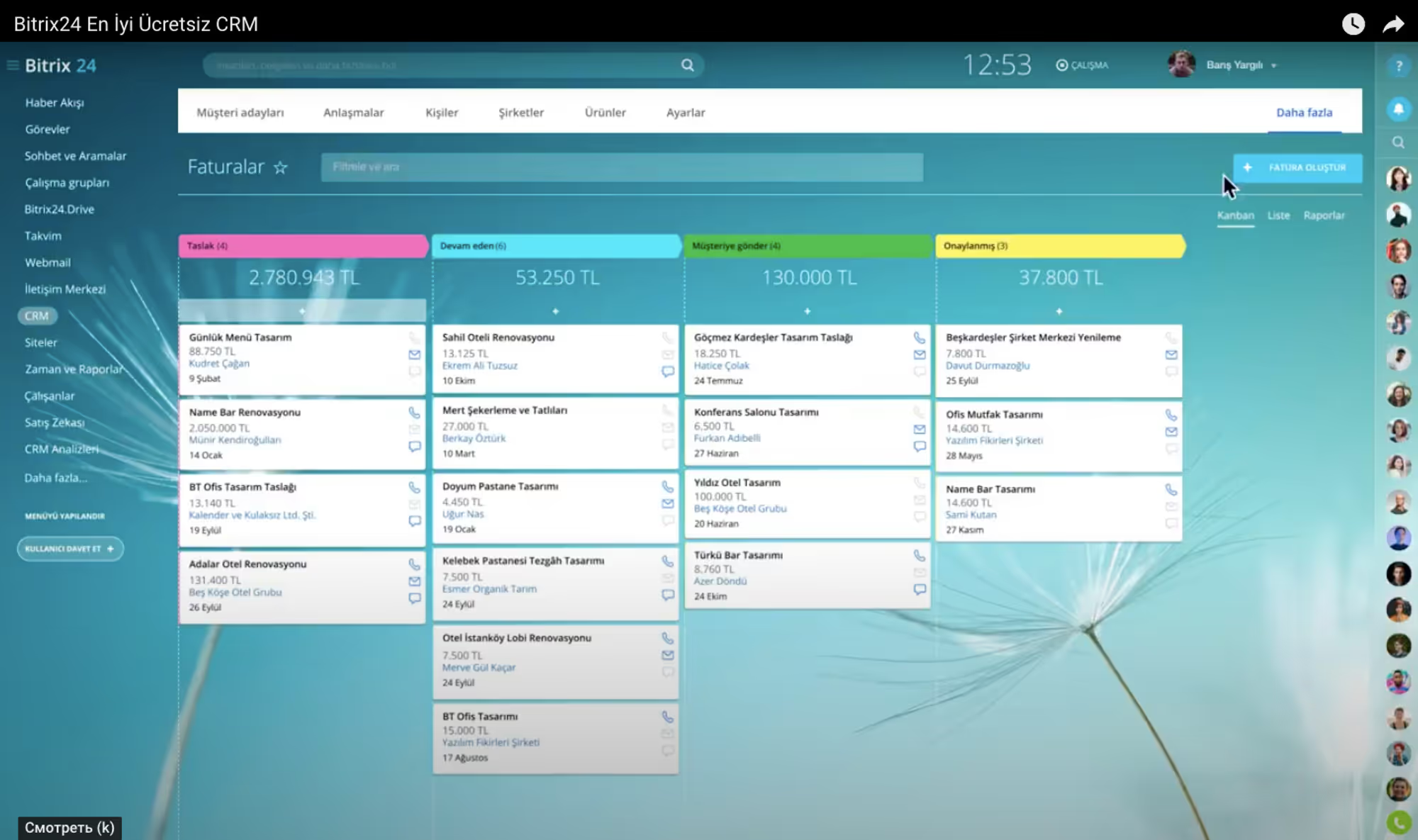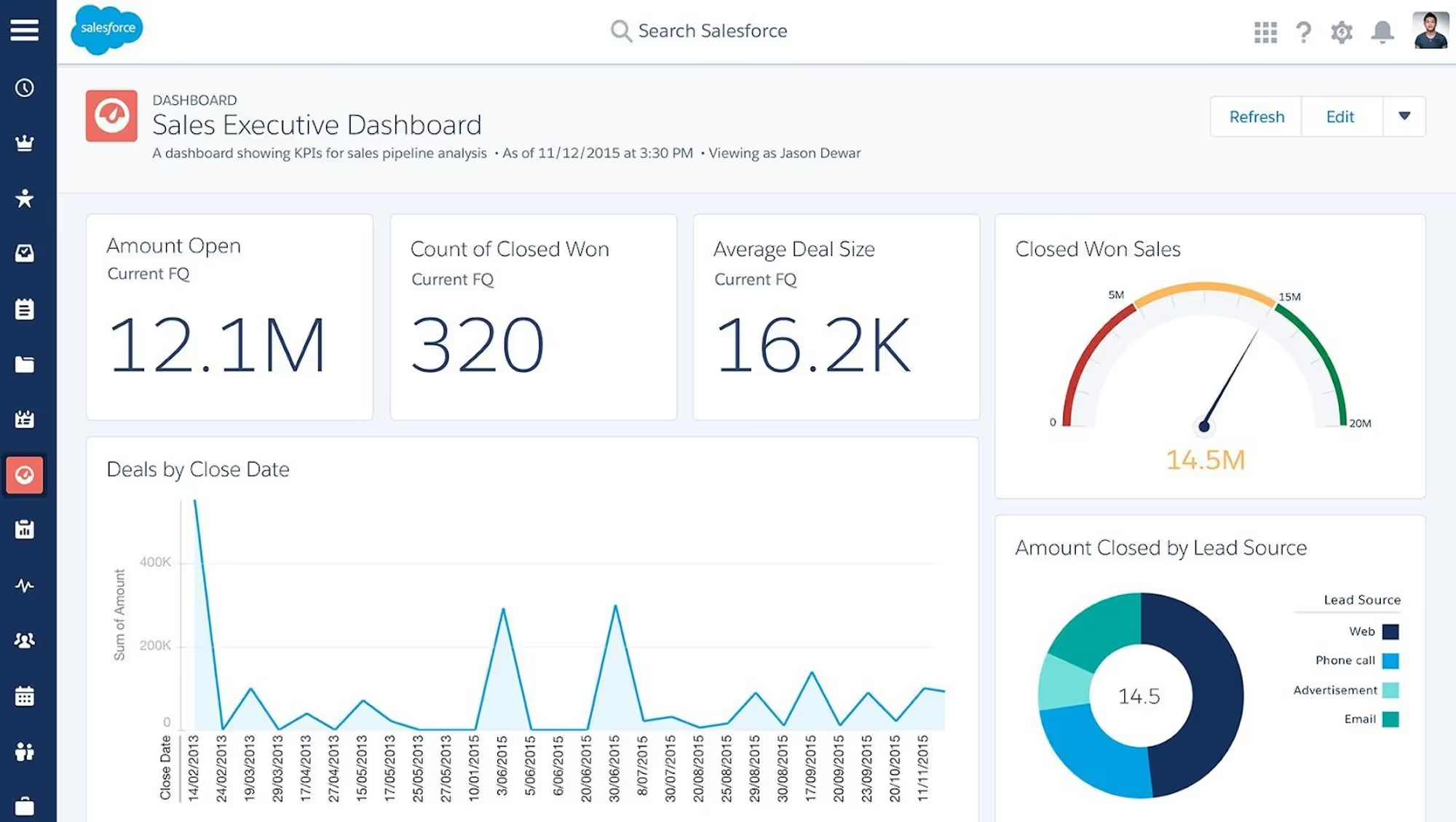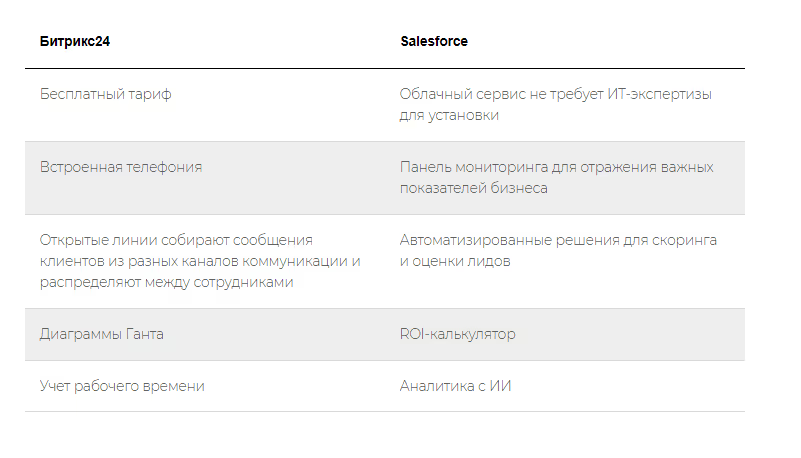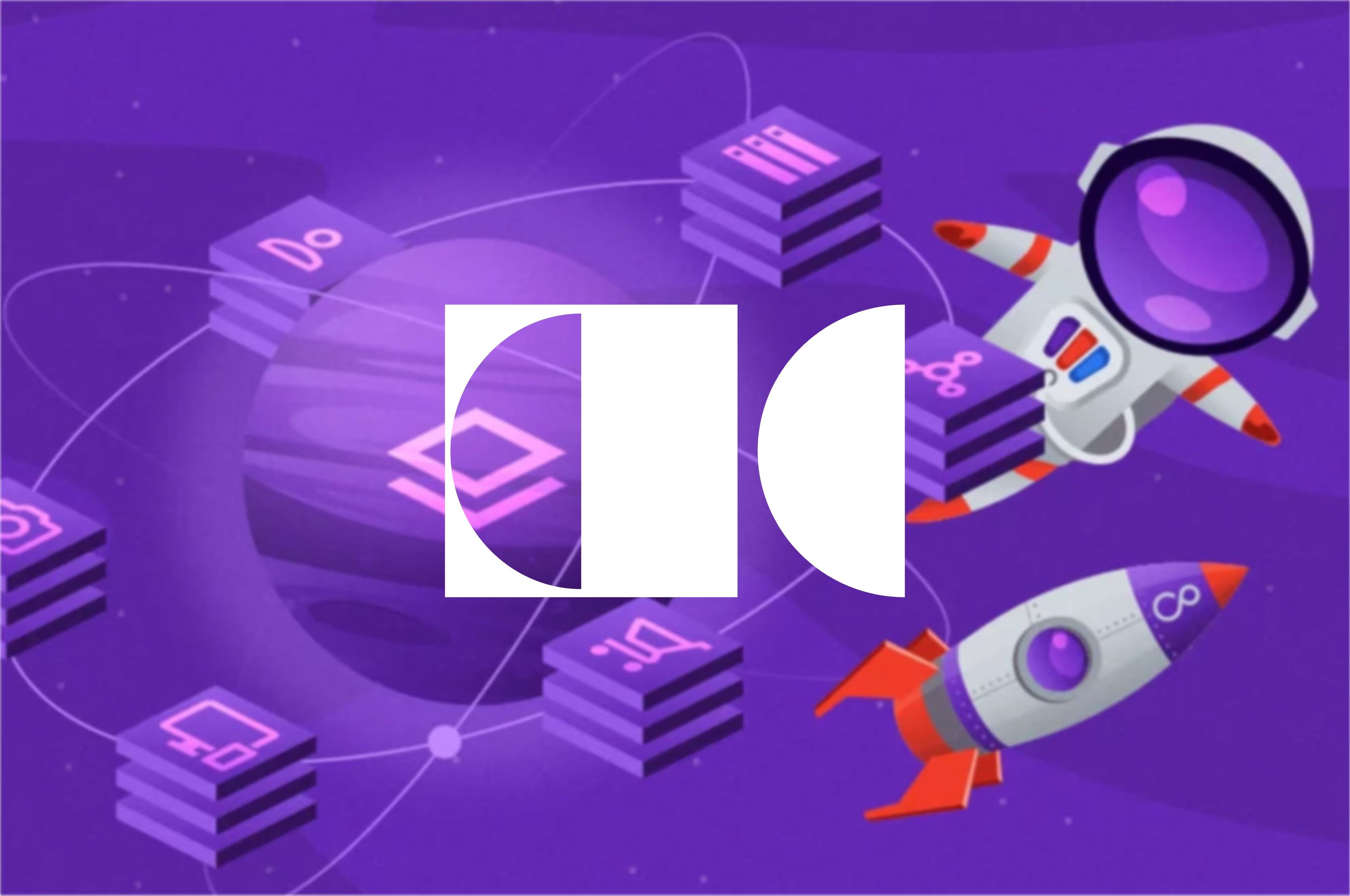According to statistics, less than 50% of CRM projects were successful. But a properly implemented CRM helps increase ROI, bringing in an average of $8.71 for every $1* invested. Difficulties arise not only at the implementation stage, but even at the selection stage. At the same time, the cost of a mistake when a company has invested in CRM but does not use it can run into millions of dollars.
In this article, we will look at the reasons for implementing and re-implementing CRM that we have encountered, and we will analyze two popular CRMs according to the parameters that KT.team's e-commerce, logistics and development customers named important.
We hope this article will help someone make the right choice.
3 common reasons to implement or reimplement a CRM system
1. It is necessary to keep records of customers and sales.
The situation of a newcomer to the market, a small business representative or a startup. To manage effectively, you need to see reports and the history of customer relationships. And when you see it, automate business processes and sell more.
2. The implemented CRM does not cope with the tasks.
The company has grown significantly or adjusted its line of business, and the current solution no longer carries such a burden. Sometimes the reason for re-implementation is that the processes of customer accounting and production control are “sewn” together, which hinders effective management. Companies that use a self-written CRM solution are often faced with the fact that at some stage it is easier to replace it than to adapt it to new tasks.
3. There is a need to store all data on your servers, and the previous CRM system did not allow this.
Legislative changes or special security requirements may make it necessary to switch to another CRM. Then the company stops storing data in the cloud and installs CRM on its own servers.
We asked our clients, including representatives of medium and large businesses in e-commerce, logistics and development, to list in order of importance the criteria by which they choose a CRM system.
Top 7 criteria for choosing CRM systems from KT.team customers
- A set of features
- Scalability
- Cost of ownership
- The complexity of implementation
- Customization option
- Flexible configuration: how much the client can support/operate the system independently
- User friendliness
We will use these criteria to compare Bitrix24 and Salesforce.
A set of features
Of course, both systems are fully equipped with typical CRM functionality. Both services meet the needs of companies in the field of customer accounting, sales and marketing activities (including working with social networks). But there are nuances. For example, some customers believe that Salesforce has a better understanding of the logic of B2B processes, while Bitrix24 supports the processes of companies working with end consumers more. We have identified the most notable differences in functionality.
Of course, you can improve the missing functionality by adding the modules yourself or ordering them to be developed by a contractor. But for the sake of a clean analysis, we compare functions out of the box here.
Bitrix24
This CRM system is characterized by well-developed features:
- Direct data import/export
- The history of customer interactions
- Access management
- Sending notifications
- comments
- Time management
- Resource management
- Monitoring staff performance
- Delegating tasks
- Add guest users
Salesforce
The functionality of this CRM system, in addition to the standard functionality, includes the following functions:
- Flexibility to customize fields on the customer card
- Availability of the “Contact+ Company” report with filters
- Quick update by ID
- The ability to establish links between contacts
- Lead capture
- Tracking sources
- Distribution of customers among employees
- Request a call back
- Targeting
- Customer self-service
- Queue management
Scalability and customization options
Bitrix24
The boxed version of Bitrix24 provides the ability to distribute the load on the system independently and add new servers. This is important for the smooth operation of high-traffic portals. In the cloud version, distribution takes place without the participation of site owners. In the Bitrix24 Market app store, you can download applications and ready-made CRMs for specific industries. Paid apps are paid by subscription.
Salesforce
Salesforce's architecture allows millions of users to work simultaneously. CRM is famous for its flexible settings and many third-party integrations. The service has an official App Exchange app store where you can download paid and free applications, which allows you to assemble an almost individual CRM for the company's tasks. All products are integrated.
Flexible configuration: how much the client can support, operate, and change the system independently
Bitrix24
Customers and developers note the very specific code on which CRM Bitrix24 is written. It is not enough just to know php to independently operate and “customize” the software for your own tasks. But the market for specialists offering such services at very affordable prices is also very wide.
Salesforce
Salesforce is a low-code platform with a clear graphical interface. This allows you to set up almost any processes, reports, dashboards, kanbans without involving a developer or with minimal involvement. Integration with external applications is possible through Mule ESB, which is part of the Salesforce ecosystem.
Friendliness
Bitrix24
Quite often, Bitrix24 customers complain about the overload of the interface and the abundance of small text. It is precisely the multitude of unused functions in the menu that gets in the way. At our company, we use Bitrix24 both for sales and recruiting, as well as for setting and tracking development tasks. From our experience, we can agree with the thesis that the interface is overloaded.
CRM Bitrix24 is available in English, German, Spanish, Portuguese, French, Italian, Polish, Russian, Ukrainian, Turkish, Chinese, Japanese, Vietnamese, Indonesian, Malay, Thai, Hindi. However, it is worth noting that these are basic features. Some of the functionality and reference materials are available only in major languages, such as English and Russian (after all, Russia is the birthplace of Bitrix24).
Salesforce
Salesforce's interface is intuitive and easy to set up. However, platform users also need to be trained to work most effectively with the service's capabilities.
In addition to English, Salesforce has been translated into French, German, Italian, Japanese, Spanish, Swedish, Korean, and Chinese — all of the system's features and modules are available in these languages.
The user interface and some features are available in 31 languages, including Arabic, Turkish, Bulgarian, Norwegian, etc. The interface can be customized for each user, which is especially useful in multilingual organizations.
Bitrix24

Salesforce

Cost of ownership
The cost of ownership consists of the cost of licenses and the cost of servers that will host the CRM.
Bitrix24
Bitrix24 has 5 tariff options:
- free — cloud CRM with unlimited users, limited disk space up to 5 GB and limited functionality
- Basic for 5 users includes Collaboration, CRM, Drive, Contact Center, Website builder, and Online store tools. Starting from this tariff, users are provided with technical support. The disk space is 24 GB. The cost is $49 per month.
- Standard is designed for 50 users for $99 per month and additionally includes Marketing modules and Online documents. Disk space — 100 GB.
- Professional is designed for companies up to 100 users. The monthly plan is $190. In addition to the functionality of previous tariffs, Sales Intelligence, Automation, and HR modules are included here. Disk space is 1 TB.
- With the Enterprise plan, you can connect up to 10,000 users. Its monthly fee starts at $399 and includes, in addition to the above features, Multiple branches, Scalability, and Enterprise pack. Disk space — 3 TB.
Salesforce
Salesforce has a flexible pricing plan that is based on paying for specific features per user. The minimum cost per user starts at $25 per month (small business plan). Salesforce products are billed separately: for example, Sales and Service Cloud in the maximum version will cost $325 per user.
Salesforce's 24/7 technical support is only included in the most expensive plan, with a subscription fee of $300 per user.
Purpose
Bitrix24
The service includes a CRM system that clearly displays sales, consolidates the history of communication with customers and the movement on each deal. Regular integrations with popular messengers and social networks are provided. You can connect telephony, various payment and delivery services. In all packages, in addition to the free one, there is an option to create an online store.
Salesforce
The service includes a CRM system for effective customer relationship management, with Sales Cloud at its center. This is where reports are generated, sales funnels are built and lead generation capabilities are connected. Additional features are available in Marketing, Service, and Experience Cloud. The company originally set out to provide customers with a complete outsourcing of information technology and is coping with this task.
What tasks to solve in each CRM
Small business
We want to launch a sales website with automated customer service. We communicate and sell in all major messengers; we will need ready-made integrations with these applications. You don't have the resources to develop unique scenarios; you need a template solution.
Advice:
You should pay attention to ready-made online stores, as well as CRM with ready-made industry settings from Bitrix24.
Medium-sized businesses
We want to increase repeat sales, collect the entire communication history into one customer card and connect analytics. Automated control by the sales department will also be required. For this purpose, the ability to easily change settings in dashboards is important.
Advice:
Explore the capabilities of Salesforce Einstein's AI-based technology. The system analyzes all data from the customer card, as well as information flows from social networks, learns itself and predicts future customer behavior.
Big business
We want to set and monitor the fulfillment of goals by the sales department, including personal tasks for individual employees. Our prices change frequently, and it is important to update them quickly and accurately, including when the price consists of the cost of several goods and/or services. In addition to sales, we provide delivery, assembly and installation services. It is necessary to integrate CRM with these services, as well as reflect the special logic of our ordering and reporting scenario.
Advice:
It makes sense to calculate tasks with multiple modules using Salesforce. There are more large businesses among this company's clients, which is not surprising for CRM No. 1 in the world. Spot tuning will allow you to select the right set of modules. In addition, Salesforce is also a development environment where you can write the applications you need.
Bitrix24 vs Salesforce: 3 main differences
Difference #1: data storage
While Salesforce was originally developed as a cloud-based service available on a subscription basis, Bitrix24 has a boxed solution for installation on client servers with the ability to customize it for tasks by employees or hired specialists.
Difference No. 2: Geography
Despite the fact that both companies have been operating on the global market for a long time, you should pay attention to the country of origin and the presence of branches in other regions. For effective sales and marketing management, it is important to be able to properly connect local telephony, messengers and social networks, delivery services or document management. A company already operating in the region has these options by default. Of course, any integration can be further developed, but this increases the cost of implementation.
Bitrix24
The Russian company is originally from Kaliningrad, with its headquarters there. It works all over the world, the interface has been translated into dozens of languages. The servers are located in the USA, Germany, Russia, Belarus and other countries. Together with Google Drive and PayPal, it became one of the top 5 free business apps in the world according to Techradar.
Salesforce
An American company with headquarters in San Francisco and branches in 25 countries around the world. The servers are located in the US and UK, which has its own data center for storing data from European customers, as well as in Germany and Japan. It holds the first position in the global CRM systems market, first in 2012 according to Gartner.
Difference No. 3: standard customization options
Salesforce options provide the ability to select tools for targeted problem solving, which eliminates additional customization. For example, the world's dominant CRM involves choosing the right industry solution (in financial, medical services or other services), connecting an analytical module that can find weaknesses in sales chains, or creating your own application. This is a flexible and comprehensive platform that allows you to create the necessary set of functions for doing business in almost any configuration.
In 2020, Bitrix24 also added the ability to upload ready-made settings from its marketplace. There are solutions for developers, dentists, repair services, wholesale trade and many other types of businesses. Choosing a CRM with pre-installed settings significantly reduces implementation costs and will help small and medium-sized businesses save significantly. But in no case should you install your favorite industry solution on top of an already installed one; this will lead to the loss of all previous settings.
Additional benefits of karma

Why move on?
It is not uncommon to switch from one CRM to another. In autumn 2022, KT.team implemented such a project, and we can give a rough assessment of such cases in terms of time and financial costs.
FM Logistic, an international logistics company with a branch in Russia, was faced with the need to switch to Bitrix24 as soon as possible due to the fact that Salesforce stopped working with customers from Russia.
At the first stage, we created a comprehensive technical specification, for which we analyzed all the processes that were implemented with Salesforce and all the data that needed to be transferred. It was necessary to act very quickly, as the service could be shut down at any time, which would mean losing all data for the customer.
The task was complicated by the fact that the client shared Salesforce for all departments. We had to work with a system without data — the company did not want to disclose sensitive information from all its regional offices.
Based on the analysis, we will:
- recorded key entities (contacts, companies, leads, deals) — the composition of fields, their relationships, data types;
- chose which Bitrix24 modules the client needs;
- We worked out how to replace the Salesforce functionality, which is not available in Bitrix24 and which the client used.
Result 1. The client's work did not stop for a day, since the development and testing of processes in Bitrix24 did not affect the existing CRM.
Result 2. The KT.team migrated the data that was stored in Salesforce, preserving its structure and mutual connections. The data was obtained in the.xls and .csv formats, entered into the system and the performance of new processes was checked.
It took about 80 working hours to deploy Bitrix24, transfer data, and build logic in the new system. The first users started working with the MVP system less than a month after the start of the project.
Conclusion
When making the final decision on choosing a CRM, consider not only cost and compliance with the tasks, but also other factors, such as the possibility of full-time integrations in the local market, the cost of support, and the possibility of self-refinement.
If it is important for a company to store data on its own servers, maintain CRM on its own and customize it for current tasks, Bitrix24 provides these opportunities. If a large company needs a standard turnkey service with flexible functionality from various modules, it makes sense to take a closer look at Salesforce.
Sources:
- 2009 Forrester Research
- 2014 Nucleus Research
https://nucleusresearch.com/research/single/crm-pays-back-8-71-for-every-dollar-spent/
- BuyerZone
https://econsultancy.com/five-reasons-your-crm-isn-t-actually-increasing-sales/
- 2021 IDC https://www.salesforce.com/news/press-releases/2021/04/26/salesforce-named-1-crm-provider-for-eighth-consecutive-year/
- 2020 RB.RU https://rb.ru/news/crm-in-russia/


.avif)






